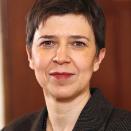4. International Diplomats Program: Excursion to Hesse and North Rhine-Westphalia
The trip began with a visit to the Bundesrechnungshof (German SAI) in Bonn, where Head of Division Werner Pelzer explained the agency’s working methods and how it functions to the diplomats. Using concrete examples, he showed how corrective intervention by the Bundesrechnungshof has in the past been able to save millions in taxes.
The subsequent visit to Deutsche Welle focused on Germany’s image abroad and on how it is communicated. Ute Schaeffer, Editor-in‑Chief for Regionalized Content, along with those of her colleagues specializing in the participating diplomats’ home regions, outlined Deutsche Welle’s history, structures and mandate, which is not merely to broadcast programmes in over 30 languages, but to use these programmes deliberately to spread knowledge and to ensure that they have a lasting effect. In this connection, Tilman Rascher, Head of DW Akademie’s Middle East Division, spoke about the activities of Deutsche Welle Akademie, whose main tasks are journalism training, media training and development and the promotion of diversity of opinion around the world. Speaking with these representatives of Deutsche Welle, the diplomats discussed both the potential and the challenges inherent in the new media, as well as the impact they are having on traditional means of communication.
The diplomats also looked at how to interest people in their country, maybe even persuade them to come to study or research there, when they visited the German Academic Exchange Service (DAAD). Along with his colleagues, Head of Division Dr Helmut Blumbach presented various DAAD projects in the participants’ home countries and talked about current trends in applicant and scholarship numbers. For example, far more German students decide to study in North America than Americans come to study in Germany.
Training was also the main topic for Markus Loewe from the German Development Institute (DIE), who presented the Institute’s academic activities as well as its postgraduate programme for young people pursuing a career in development policy, an offer which met with lively interest.
The diplomats got to know another player in development cooperation next day when they visited the KfW Entwicklungsbank in Frankfurt, where Head of Division Eva Witt explained KfW’s tasks and steering mechanisms with reference to specific projects. The diplomats then got a further insight into the banking system and monetary circulation in talks with Michael Sturm of the European Central Bank, who not only outlined the ECB’s structure and working methods, but also went into the causes of the financial crisis, in particular pointing out a frequent misrepresentation: contrary to what we often read and hear, he said, the current crisis is not a euro crisis; the euro is stable, both internally and externally. Rather, it is a debt crisis. This differentiation was key, he emphasized, and had to be communicated over and over again. This was just one of the many facts taken on board by participants at the end of the two-day excursion.
The International Diplomats Programme is an initiative of the Federal Foreign Office and the BMW Foundation Herbert Quandt and is supported by the German Council on Foreign Relations (DGAP). Every year, twelve young diplomats from the Middle East, North Africa, South Asia, East Asia and South-East Asia are invited to experience German life and institutions from a variety of angles in a year-long programme run in English. For further information please contact Ms Senta Höfer, senta.hoefer@diplo.de, 030 1817‑4838 or Mr Gregor Darmer, gregor.darmer@diplo.de, 030 1817‑1086.
